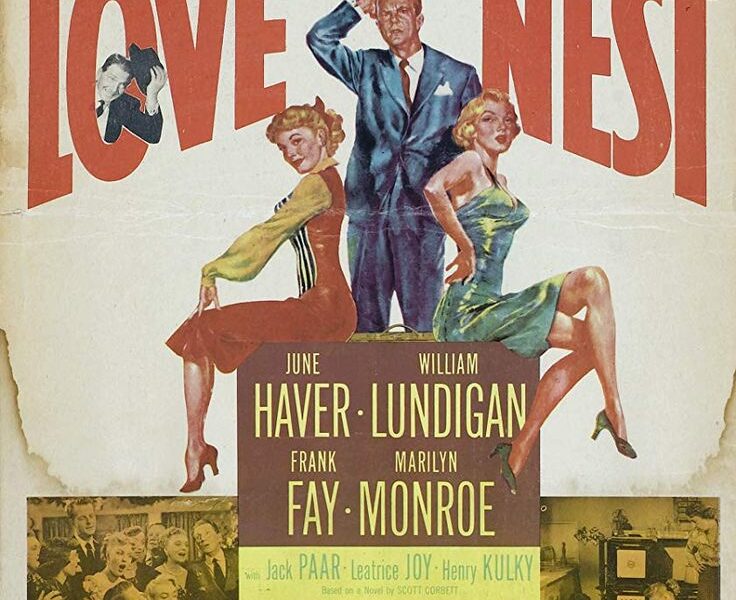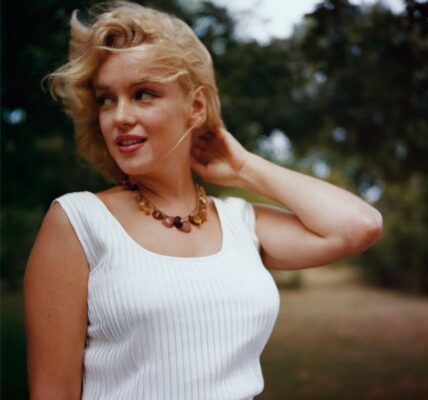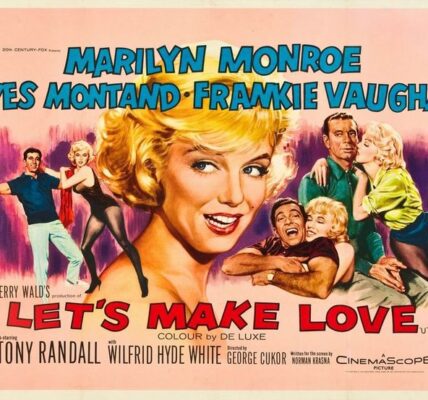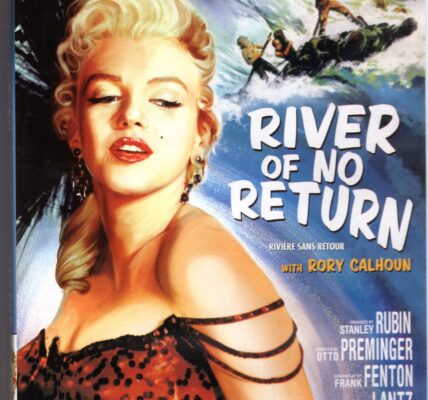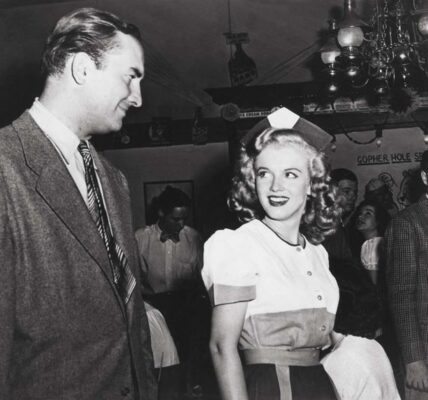**”Love Nest”** (1951) is a romantic comedy film that features Marilyn Monroe in a supporting role, adding to her growing reputation as a rising star in Hollywood. The film, directed by Joseph M. Newman, blends humor, romance, and misunderstandings as it explores the lives of a group of people living in a New York apartment building.

### Film Details:
– **Title**: Love Nest
– **Release Year**: 1951
– **Genre**: Romantic Comedy
– **Director**: Joseph M. Newman
– **Screenwriter**: I.A.L. Diamond (adapted from the novel by Scott Corbett)
– **Cinematography**: Lloyd Ahern
– **Production Company**: 20th Century Fox
– **Runtime**: 84 minutes
– **Main Cast**:
– **June Haver** as Connie Scott
– **William Lundigan** as Jim Scott
– **Frank Fay** as Charley Patterson
– **Marilyn Monroe** as Roberta “Bobbie” Stevens
– **Jack Paar** as Ed Forbes

### Plot Summary:
**”Love Nest”** follows the lives of **Jim Scott** (William Lundigan), a recently discharged World War II veteran, and his wife **Connie** (June Haver), who purchase a run-down apartment building in New York City. They plan to fix it up and rent out the units as a way to start a new life together. However, their dream quickly turns into a comedy of errors as they deal with a host of quirky tenants and unexpected situations.
One of their tenants is **Charley Patterson** (Frank Fay), a smooth-talking con man who becomes a source of both humor and trouble. Another tenant, and a significant character in the film, is **Roberta “Bobbie” Stevens** (Marilyn Monroe), a beautiful and glamorous model who once knew Jim from their time in the military. Bobbie’s presence causes some tension between Jim and Connie, as Jim’s past connection with her leads to misunderstandings.
As the film progresses, Jim and Connie must navigate the complications of managing their new property while handling the colorful characters who live in the building, including Bobbie, whose charm and beauty make her an important character in the film’s romantic dynamics

### Marilyn Monroe’s Role:
Marilyn Monroe plays **Roberta “Bobbie” Stevens**, a former WAC (Women’s Army Corps) member and Jim Scott’s old military friend. Though her role is not the lead, Monroe’s character adds a layer of romantic tension, as her flirtatious nature and ch arm stir up jealousy in Jim’s wife, Connie. Monroe’s portrayal of Bobbie, with her characteristic blend of sensuality and playfulness, made her a standout in the film, even though it was a supporting role.
Her performance in **”Love Nest”** continues to showcase the development of her “dumb blonde” persona, which she would later perfect in films like **”Gentlemen Prefer Blondes”** (1953) and **”How to Marry a Millionaire”** (1953). Monroe’s beauty and comedic timing were central to her growing popularity, and **”Love Nest”** was another stepping stone in her journey to becoming a Hollywood icon.

### Themes:
– **Post-War Adjustment**: The film touches on the difficulties of adjusting to civilian life after World War II, as Jim and Connie transition from wartime experiences to the everyday challenges of managing an apartment building.
– **Romantic Tension**: The romantic dynamic between Jim, Connie, and Bobbie introduces the theme of jealousy and trust within marriage. Bobbie’s appearance in their lives adds humor and tension, driving much of the plot.
– **Misunderstandings**: As a typical romantic comedy of the era, the film plays on misunderstandings between the characters, especially regarding Jim’s interactions with Bobbie, which creates comedic situations.

### Reception:
**”Love Nest”** received moderate reviews upon its release, with audiences enjoying its lighthearted humor and charming performances. While it was not a groundbreaking film, it was appreciated as a feel-good romantic comedy typical of the era. Monroe’s role, though small, garnered attention, with critics beginning to take note of her on-screen presence and growing star appeal.
### Marilyn Monroe’s Impact:
Though still in a supporting role, Marilyn Monroe’s appearance in **”Love Nest”** helped cement her as a rising talent in Hollywood. Her performance was charismatic, and she captured the audience’s attention with her beauty, comic timing, and charm. Following **”Love Nest,”** Monroe’s roles in films became increasingly prominent, as she transitioned from supporting parts to lead roles in the years to come.

### Fun Fact:
**”Love Nest”** was one of the last films Monroe appeared in before becoming a major star. Shortly after this film, she landed more substantial roles that would catapult her to fame, including her iconic performances in **”Niagara”** (1953) and **”Gentlemen Prefer Blondes”** (1953).
The film is often remembered today for being part of Marilyn Monroe’s early career, as fans of her work can trace her rise to stardom through her supporting roles like that of Bobbie in **”Love Nest.”**
Watch movie:
